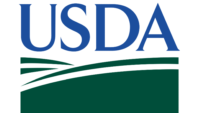In an effort to ensure safe eating experiences and address potential consumer confusion, the National Chicken Council (NCC) petitioned the U.S. Department of Agriculture's Food Safety and Inspection Service (FSIS) for mandatory labeling of raw, stuffed chicken products that may appear cooked and ready-to-eat. These raw chicken products, typically sold frozen, would include items such as breaded, pre-browned chicken cordon bleu, chicken Kiev and chicken stuffed with broccoli and cheese.
Specifically, NCC is requesting that the agency take the following actions:
- Conduct a rulemaking to adopt a regulation requiring that not-ready-to-eat (NRTE) stuffed chicken breast products that appear ready-to-eat (RTE) be prominently and uniformly labeled to clearly inform consumers that the products are raw and how to properly handle and cook them; and
- Publish a Compliance Guideline explaining how to validate cooking instructions for NRTE stuffed chicken breast products that appear RTE, which incorporates NCC's "Best Practices for Cooking Instruction Validation for Frozen NRTE Stuffed Chicken Breast Products."
These science-based recommendations for mandatory labeling and validated cooking instructions are supported by both the National Advisory Committee on Meat and Poultry Inspection (NACMPI) and National Advisory Committee on Microbiological Criteria for Foods (NACMCF).
"NCC increasingly is aware that some consumers may be uncertain of the proper handling and cooking methods for NRTE stuffed chicken breast products that may appear RTE, and the proposed measures are necessary to ensure proper handling and cooking of these products," said NCC President Mike Brown in the petition. "This labeling would clearly inform consumers that these products are raw and require proper cooking while providing specific and uniform instructions on how to cook the products."
NCC research demonstrates that the proposed label regulations would be successful in increasing consumer awareness that these products contain raw poultry and must be cooked for safety. "It is necessary for FSIS to adopt these proposals via mandatory regulation," Brown continued, "both to ensure that products bear consistent and uniform language and display methods that have been proven effective and to avoid inconsistent messaging that may cause further consumer confusion."
"The health and safety of consumers is our number one priority," Brown concluded. "Making these labels mandatory and providing validated cooking instructions on every package of raw, breaded, stuffed chicken will give consumers one more tool to ensure a safe eating experience for them and their families."
Source: National Chicken Council

Report Abusive Comment